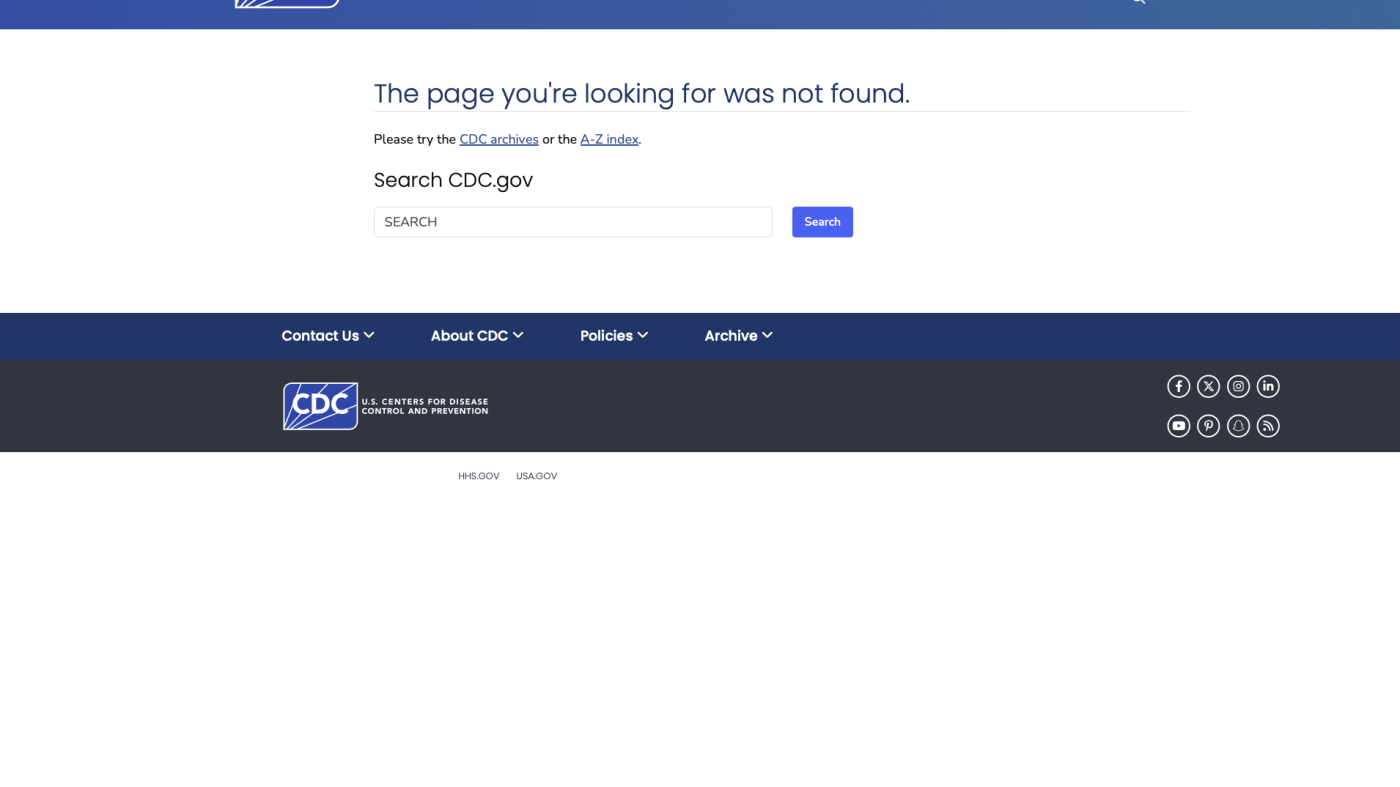Health Agency Websites Scrubbed: Trump's Digital Cleanse Sparks Controversy

Vanishing Health Information: A Troubling Trend in Federal Websites
In a concerning development for public health transparency, critical research and foundational health information have been systematically removed from federal health agency websites. These disappearing resources cover a wide range of vital topics, from tuberculosis surveillance to adolescent health, potentially leaving researchers, healthcare professionals, and the public with limited access to crucial scientific data.
The sudden erasure of these comprehensive health resources raises significant questions about the motivations behind such widespread content removal. Researchers and public health advocates are increasingly worried about the implications of this information blackout, which could potentially hinder medical research, policy-making, and public health understanding.
The scope of the removed content is particularly alarming. Detailed epidemiological studies, long-term health trend analyses, and specialized research that took years to compile have seemingly vanished without clear explanation. This trend not only disrupts ongoing research efforts but also creates gaps in our collective understanding of critical health issues.
Experts suggest that this information purge could have far-reaching consequences, potentially impacting everything from academic research to public health strategy. The lack of transparency and sudden removal of established scientific resources undermines the principles of open access to health information.
As the scientific community and concerned citizens continue to seek answers, the disappearance of these vital health resources remains a troubling and unresolved issue.
